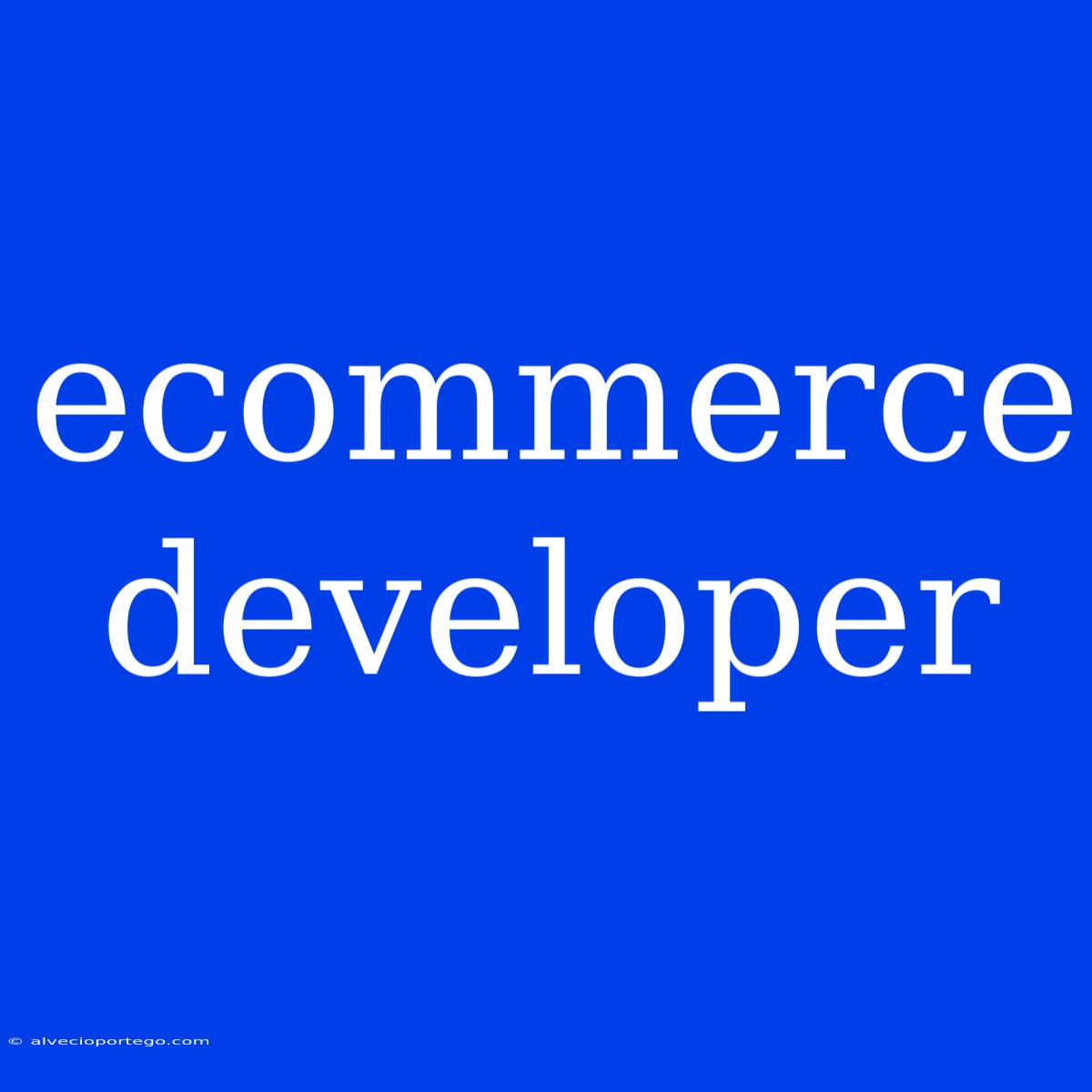The Ecommerce Developer: Building the Future of Online Shopping
Ecommerce is booming, and as businesses move online, the demand for skilled ecommerce developers continues to rise. These professionals are the architects behind the seamless online shopping experiences we've come to expect, from browsing product catalogs to secure checkout processes. But what exactly do ecommerce developers do, and what skills do they need to thrive in this dynamic field?
What Does an Ecommerce Developer Do?
Ecommerce developers are responsible for designing, building, and maintaining the technical infrastructure of online stores. They work with a variety of technologies, including:
- Frontend Development: Creating the user interface (UI) and user experience (UX) of an ecommerce website, ensuring it's visually appealing, easy to navigate, and responsive across different devices.
- Backend Development: Building the server-side logic, databases, and APIs that power the core functionality of an ecommerce platform, such as order processing, inventory management, and payment integration.
- Database Management: Designing and implementing database structures to store and manage product information, customer data, and other relevant information.
- Security: Implementing security measures to protect sensitive customer data, prevent fraud, and ensure compliance with industry standards.
- Performance Optimization: Ensuring that the website loads quickly and functions efficiently, providing a smooth user experience.
- Integration with Third-Party Services: Connecting the ecommerce platform with various external systems like payment gateways, shipping carriers, and marketing platforms.
Essential Skills for Ecommerce Developers:
To succeed in this field, ecommerce developers need a diverse set of technical skills, including:
- Programming Languages: Proficiency in languages like HTML, CSS, JavaScript, Python, PHP, and Java is crucial for building and maintaining ecommerce websites.
- Frameworks and Libraries: Experience with popular frameworks like React, Angular, Vue.js, Django, and Laravel streamlines development and enhances efficiency.
- Database Technologies: Knowledge of SQL for querying and managing data in relational databases is essential for handling product catalogs and customer information.
- API Development: Understanding how to create and utilize APIs is critical for integrating with third-party services.
- Version Control Systems: Proficiency in Git is essential for collaborative development and managing code changes.
- Cloud Computing: Familiarity with cloud platforms like AWS, Azure, and Google Cloud is beneficial for hosting and scaling ecommerce websites.
- Security Best Practices: Understanding common security vulnerabilities and implementing appropriate measures to protect user data is crucial.
- Problem-Solving and Analytical Skills: The ability to diagnose and resolve technical issues quickly is essential for maintaining a smooth online shopping experience.
The Benefits of an Ecommerce Developer Career:
- High Demand and Job Security: The rapid growth of ecommerce ensures a steady demand for skilled developers.
- Competitive Salaries: Ecommerce developers earn competitive salaries, reflecting the value they bring to businesses.
- Variety and Challenge: Working on different projects and technologies keeps the work stimulating and allows for continuous learning.
- Impactful Work: Ecommerce developers play a vital role in shaping the future of online shopping, contributing to a growing industry and making a real difference in the digital world.
Conclusion:
The role of an ecommerce developer is essential in today's digital landscape. With the right skills and dedication, they can build successful online businesses and transform the way we shop. If you're passionate about technology and want to be at the forefront of a booming industry, consider pursuing a career as an ecommerce developer.

